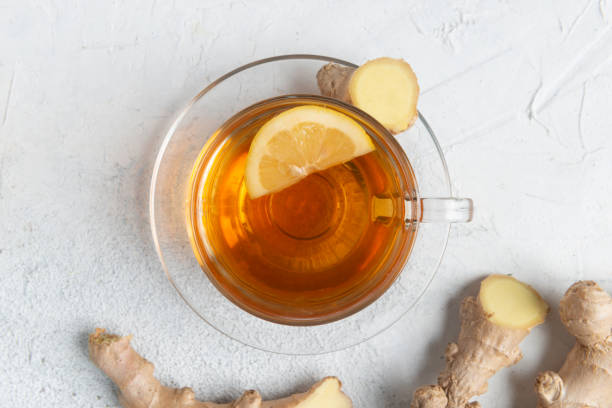

The Blossoming World of Flower Tea: A Delicate Sip of Nature
Flower tea, also known as floral tea, offers a symphony of flavors and health benefits that elevate the simple act of drinking tea to an exquisite experience. These teas, made by steeping various flowers in hot water, are as much a feast for the eyes as they are for the palate. From the vibrant hues of hibiscus to the subtle elegance of jasmine, flower teas encapsulate the essence of nature in a cup. This article explores the types, benefits, preparation methods, and cultural significance of flower tea.
Types of Flower Tea
Flower teas come in a variety of forms, each with its unique taste and therapeutic properties:
- Chamomile Tea: Known for its calming effects, ชาดอกไม้ is made from the dried flowers of the Matricaria plant. It has a sweet, apple-like flavor and is often consumed to relieve stress and promote sleep.
- Jasmine Tea: This tea is typically made by infusing green tea leaves with jasmine blossoms. The result is a fragrant, delicate tea with a slightly sweet taste. Jasmine tea is celebrated for its soothing properties and its ability to reduce anxiety.
- Hibiscus Tea: Hibiscus tea is made from the deep red petals of the hibiscus flower. It has a tart, cranberry-like flavor and is rich in antioxidants. This tea is known for its potential to lower blood pressure and improve heart health.
- Rose Tea: Made from rose petals or buds, this tea has a mild, floral flavor. Rose tea is often enjoyed for its potential skin benefits, as it is rich in vitamins and antioxidants that can promote a healthy complexion.
- Lavender Tea: Lavender tea is made from the dried buds of the lavender plant. It has a distinct, soothing aroma and a mild, slightly sweet taste. This tea is commonly used to alleviate headaches and reduce stress.
Health Benefits of Flower Tea
The health benefits of flower tea extend beyond their soothing properties. These teas are packed with antioxidants, vitamins, and minerals that contribute to overall well-being:
- Rich in Antioxidants: Flower teas are abundant in antioxidants, which help combat free radicals in the body. This can reduce oxidative stress and lower the risk of chronic diseases such as cancer and heart disease.
- Anti-Inflammatory Properties: Many flower teas, like chamomile and hibiscus, have anti-inflammatory properties that can help reduce inflammation in the body. This makes them beneficial for conditions such as arthritis and other inflammatory disorders.
- Digestive Aid: Some flower teas, such as peppermint and chamomile, are known to aid digestion. They can help soothe the digestive tract, reduce bloating, and alleviate symptoms of indigestion.
- Improved Skin Health: Rose and jasmine teas are particularly known for their skin benefits. They can help improve complexion, reduce acne, and promote a youthful appearance due to their high vitamin content.
- Stress Relief: The calming properties of flower teas like lavender and chamomile can help reduce stress and anxiety. They promote relaxation and can improve sleep quality, making them a natural remedy for insomnia.
How to Prepare Flower Tea
Preparing flower tea is a simple process that allows you to fully enjoy the flavors and benefits of the flowers:
- Choose Fresh or Dried Flowers: You can use fresh flowers from your garden or dried flowers from a reputable supplier. Ensure the flowers are free from pesticides and chemicals.
- Boil Water: Use filtered water for the best taste. Bring the water to a gentle boil.
- Steep the Flowers: Place the flowers in a teapot or a cup and pour the hot water over them. Cover the teapot or cup to retain the aromatic oils and steep for 5-10 minutes, depending on the type of flower.
- Strain and Serve: Strain the tea into a cup to remove the flowers. You can add honey or lemon to enhance the flavor, though many flower teas are delightful on their own.
- Enjoy: Sip slowly and savor the aroma and flavor of the tea.
Cultural Significance of Flower Tea
Flower tea holds a special place in various cultures around the world:
- Chinese Culture: In China, flower tea is an integral part of traditional tea ceremonies. Jasmine tea, in particular, is highly valued and is often served to guests as a sign of respect and hospitality.
- Middle Eastern Culture: Rose tea is popular in the Middle East, where it is often flavored with cardamom and served as a symbol of love and beauty. It is commonly consumed during social gatherings and religious celebrations.
- European Culture: Chamomile tea has a long history in European folk medicine. It is used as a remedy for a variety of ailments and is often consumed before bedtime to promote restful sleep.
- Indian Culture: In India, flower teas like hibiscus and jasmine are used in Ayurvedic medicine. They are believed to balance the body’s doshas and are used to treat various health conditions.
Conclusion
Flower tea is more than just a beverage; it is a delightful experience that brings the beauty and benefits of nature into your cup. With a wide range of flavors and health benefits, flower teas offer something for everyone. Whether you are seeking relaxation, health benefits, or simply a unique tea experience, flower teas provide a perfect infusion of nature’s wonders.

